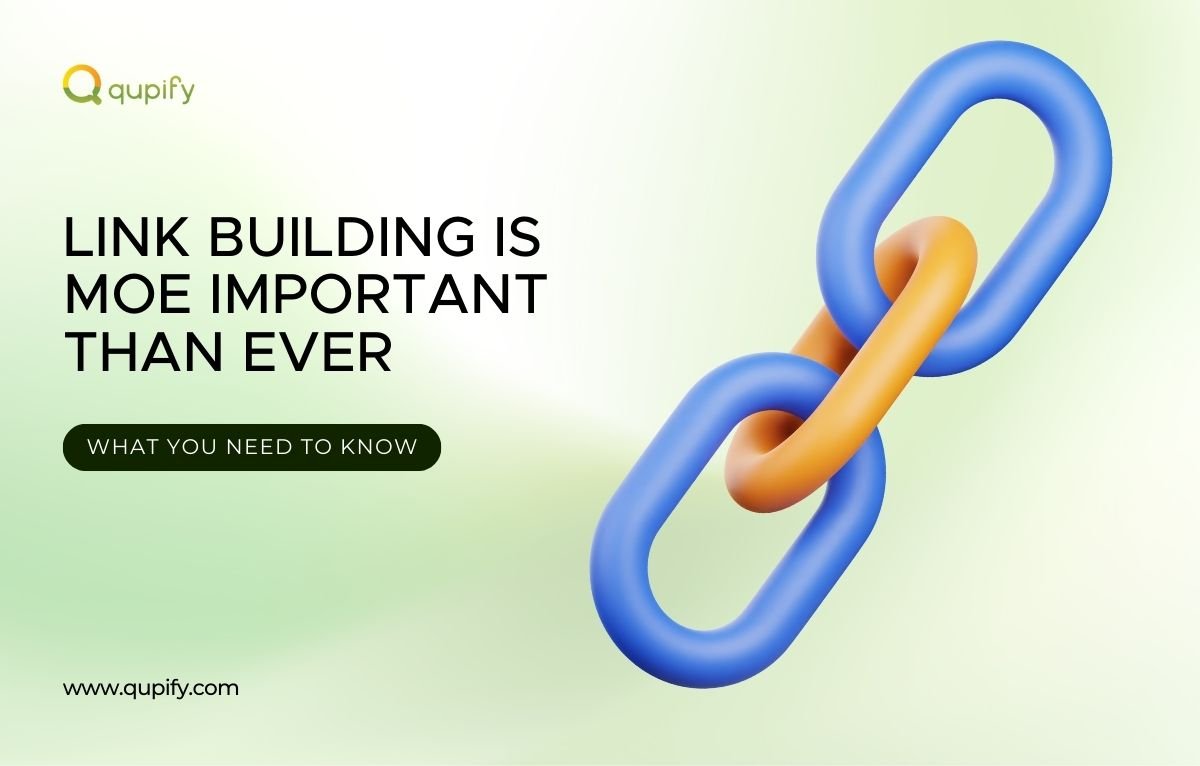Link Building is More Important Than Ever in 2025
Highlights
- Link building is a critical part of SEO in 2025, improving search rankings and online visibility.
- Ethical practices and quality content ensure link-building strengthens authority without risking penalties.
- Google’s guidelines, such as E-E-A-T, help prioritize trustworthy and credible content for ranking success.

Search engine optimization (SEO) evolves every year, but backlinks continue to play a major role in improving rankings. Is link building still relevant to SEO?
The answer is a clear yes.
Quality link-building remains an essential part of digital strategies, provided it’s done ethically and focuses on adding value.
Why Spammy Practices Are Bad and Which You Need to Avoid
Google’s spam policies are designed to maintain the quality and integrity of its search results. These policies ensure that users are directed to trustworthy and relevant content.
Spammy practices, such as manipulative link-building tactics, can lead to penalties, lower rankings, or even removal from search results.
Link Farms
A link farm is a group of websites created solely to link to one another. Search engines flag these networks as manipulative, which can harm your rankings instead of improving them.
Link Schemes
Buying links or participating in excessive link exchanges to manipulate rankings violates Google’s policies. These schemes often involve low-quality or irrelevant links that add no value to users and can lead to penalties.
Instead, focus on earning backlinks through ethical strategies like creating informative and engaging content.
Over-Optimized Anchor Text
When every link to your site uses the same keyword repeatedly, it looks unnatural. Search engines see this as an attempt to manipulate rankings, which can lead to penalties.
Automatically Generated Content
This refers to content created by programs or scripts solely to manipulate search rankings. Such content often lacks relevance, accuracy, and originality, making it unhelpful for users.
Examples include spinning articles or using AI tools without adding human oversight.
Google flags this type of content as spam, prioritizing well-written and user-focused material instead.
Cloaking and Sneaky Redirects
Cloaking involves showing different content to search engines and users, while sneaky redirects send users to unrelated pages. These practices deceive both search engines and visitors, violating transparency standards.
For example, presenting a high-quality article to search engines but redirecting users to a sales page can result in severe penalties from Google.
How to Build Strong Domain Authority
Building domain authority requires consistent efforts across various areas of your website and marketing strategy. It’s not just about having more links but about creating a foundation of quality and trust.
Relevant Links (Backlinking)
Links from sites that are relevant to your industry show search engines that your content belongs in your niche. When your backlinks come from credible, topic-related websites, it strengthens your authority and improves your rankings.
Original Content
Creating original content ensures your site stands out. Articles, research, or infographics that provide helpful information naturally attract backlinks because they offer value to other websites and their readers.
Strategy to Avoid Wasting Resources
Without a clear strategy, you might spend time chasing links that don’t help your site. Focus on high-quality opportunities that align with your goals instead of targeting every available link. This saves resources and increases the impact of your link-building efforts.
Factors That Affect Google’s Search Quality Evaluator
Google’s Search Quality Evaluator Guidelines emphasize four critical factors—Experience, Expertise, Authoritativeness, and Trustworthiness (E-E-A-T).
These elements help Google determine whether a website provides high-quality and reliable content. E-E-A-T is particularly important for sites in fields like health, finance, or law, where inaccurate or low-quality information can harm users.
1. Experience
Showcasing firsthand knowledge or practical experience helps users trust your content. Including real-world examples or testimonials can strengthen this element.
2. Expertise
Well-researched and accurate content demonstrates expertise in your field. Google rewards pages that provide reliable information written by professionals or specialists.
3. Authoritativeness
Links from other reputable sites show that your content is a trusted resource. Building high-quality backlinks contributes to this perception of authority.
4. Trustworthiness
Trust is built by ensuring your website is secure (HTTPS), providing accurate information, and maintaining transparency. These elements are essential to earning and keeping user trust.
Why Link Building Is Essential in 2025
Link building continues to play a significant role in SEO because it strengthens your website’s credibility.
Search engines use backlinks as a major ranking factor to decide which pages deserve higher visibility.
Ethical and strategic link-building practices not only improve your site’s rankings but also enhance its reputation.
The focus now is on creating real connections and meaningful links that genuinely benefit both users and your website.
Conclusion
In 2025, link building is still relevant to SEO. The approach has shifted to prioritize quality, relevance, and ethical practices, but the core principle remains the same: backlinks matter.
By avoiding spammy tactics, creating valuable content, and aligning with factors like Google’s E-E-A-T, your site can grow its authority and visibility.



